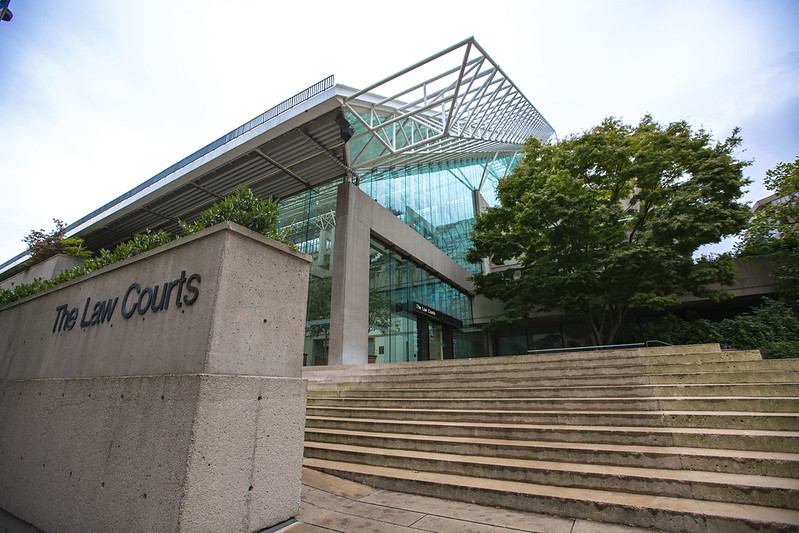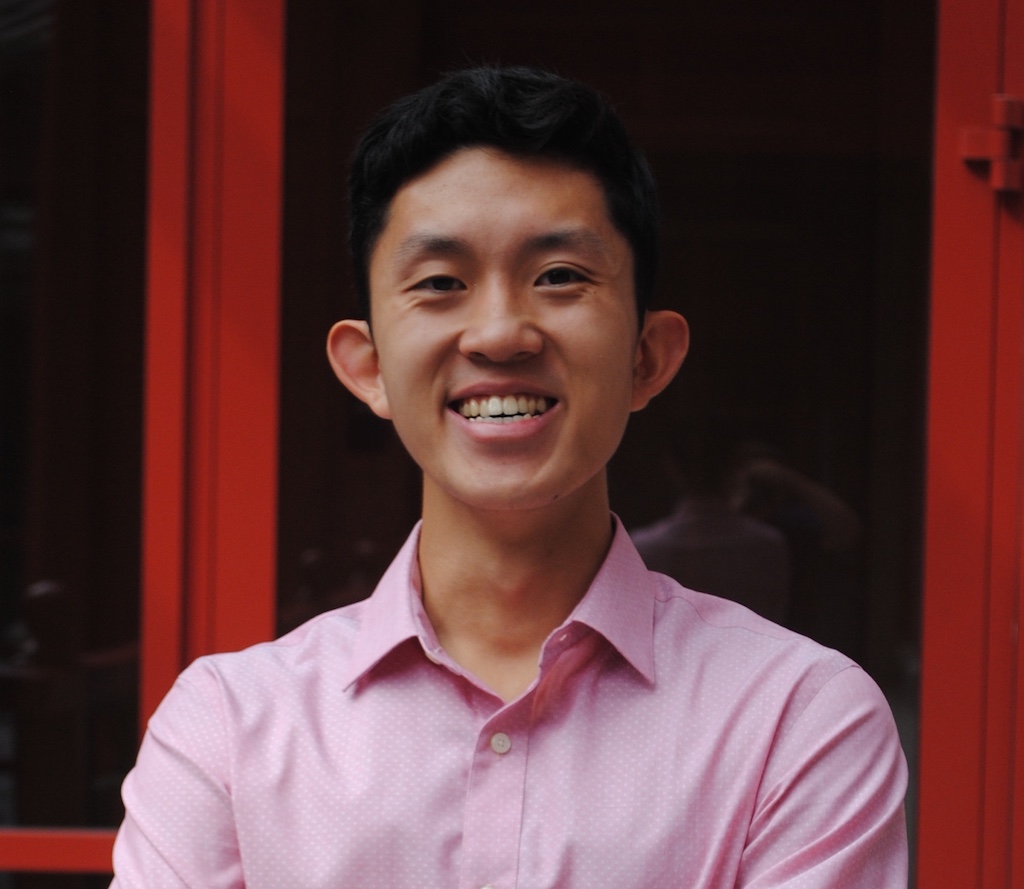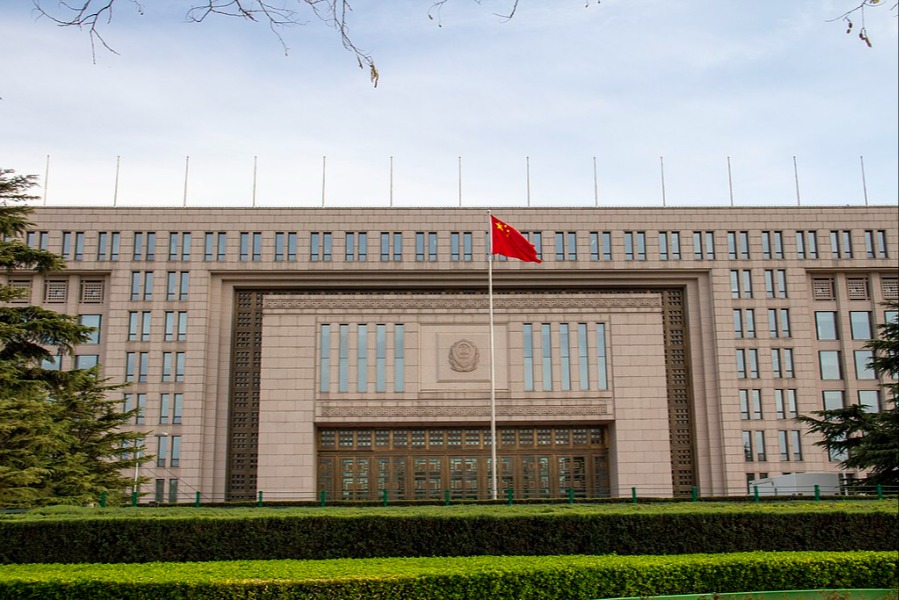Canadian Judge Dismisses Meng Wanzhou’s Application to End Extradition Hearings
What’s in the decision that brings the Huawei CFO one step closer to U.S. extradition?

Published by The Lawfare Institute
in Cooperation With

On May 27, Associate Chief Justice Heather Holmes of the Supreme Court of British Columbia—the province’s superior trial court—released her ruling in the case of United States v. Meng. Holmes concluded that the “double criminality requirement for extradition”—which holds that an alleged offense must amount to a criminal offense both in the state requesting extradition and in Canada—“is capable of being met in this case.” Holmes therefore dismissed Meng Wanzhou’s request for an “order discharging her from the extradition process.”
Facts of the Case
Canadian authorities arrested Meng on Dec. 5, 2018, in Vancouver. She is chief financial officer of Chinese telecommunications firm Huawei, as well as the daughter of its founder and CEO, Ren Zhengfei. As Holmes explains, the United States’s allegations—which are “unproven but must be taken as true for the purpose of this application”—are that Meng intentionally misled an HSBC executive about the extent and nature of Huawei’s operations in Iran. Due to the U.S. sanctions regime on Iran, U.S. federal regulations require “banks to obtain authorization … before providing financial or credit services through the US to entities in Iran.” HSBC, which was servicing Huawei at the time, had already “run afoul” of U.S. sanctions and had thus entered into a deferred prosecution agreement “with the US Department of Justice … in which it agreed not to commit further sanctions violations.”
In 2012, Reuters revealed that Skycom Tech Co. Ltd., an Iran-based company with “close ties” to Huawei, had violated U.S. sanctions. Skycom offered to sell at least “1.3 million euros worth of embargoed … computer equipment to Iran’s largest mobile-phone operator.” The Reuters piece evidently worried HSBC executives, and the bank promptly “made inquiries of Huawei about the reports.” The U.S. alleged that Meng, who had served on Skycom’s board, misrepresented the relationship between Huawei and Skycom in an Aug. 22, 2013, private meeting with HSBC in Hong Kong and thus “put HSBC at risk of fines and penalties … for new violations of US sanctions.”
Focus of the Ruling
The May 27 ruling focused on the legal doctrine of double criminality. As the Supreme Court of Canada wrote in M.M. v. United States of America, “[W]here a person is extradited for conduct not amounting to a criminal offence in the requested state, the principle of double criminality is offended.” In this case, the relevant question is whether “Meng’s alleged conduct, had it occurred in Canada, would have amounted to fraud contrary to … the Criminal Code.” Holmes noted that fraud in Canada “requires dishonest conduct with a corresponding deprivation” and that the deprivation “need not be actual economic loss, but may consist of the potential for loss.”
Meng’s central argument was that the alleged conduct could not amount to fraud because Canada does not have a sanctions regime against Iran that is similar to the United States’s. That is, since “Canada has no laws … preventing banks from doing business with Iran-based entities … [n]o deprivation could have resulted” from Meng’s alleged misrepresentations had she made them to a bank in Canada.
The attorney general of Canada countered with two arguments: First, deprivation “can be established without reliance on US sanctions and their effects” and, second, the court could “properly take the US sanctions into account as part of the foreign legal backdrop against which the essential conduct is to be understood.” Holmes dismissed the attorney general’s first argument. But she accepted the second argument, writing that “the allegations depend on the effects of US sanctions.” Holmes disagreed with Meng’s contention that it was inappropriate to refer to U.S. sanctions, writing: “Canada’s law of fraud looks beyond international boundaries to encompass all the relevant details that make up the factual matrix, including foreign laws that may give meaning to some of the facts.” In this case, reference to the U.S. sanctions was “necessary to explain how HSBC was at risk.”
Holmes thus held that the court was justified in considering the effects of U.S. sanctions “as part of the background … against which alleged conduct is examined.” Having considered these effects, Holmes concluded that “as a matter of law, the double criminality requirement for extradition is capable of being met in this case.”
International Context
Chinese media have already reacted aggressively to the court’s ruling. Days before the ruling, Meng, accompanied by friends and family, arranged a photoshoot in front of the British Columbia Supreme Court, in what CBC News termed a “premature victory lap.” The Global Times, the Chinese state-run media group, ran an optimistic piece entitled “Huawei’s Meng likely to be freed if Canada has judicial independence.” The article canvassed a number of legal experts, who expressed the expectation that Meng would go free.
Then came the May 27 ruling. The Global Times immediately published an article calling the ruling “unjustified.” Interviewed sources stated that the ruling “will make Canada a pathetic clown and scapegoat in the fight between China and the US.” A Chinese Foreign Ministry spokesperson has demanded that Canada “immediately correct its mistake, release Meng and ensure her safe return to China.”
Meng’s case is far from over. The hearing’s second phase—addressing Meng’s application to stay the extradition proceedings on the basis of abuse of process—will begin in June. If the court commits Meng for extradition, the minister of justice then must make the final decision whether to extradite her to the U.S. In the meantime, Michael Kovrig and Michael Spavor—two Canadians whom the Chinese government arbitrarily seized and charged in response to Meng’s arrest—will continue to languish in Chinese prison as Beijing retaliates for the ruling.





